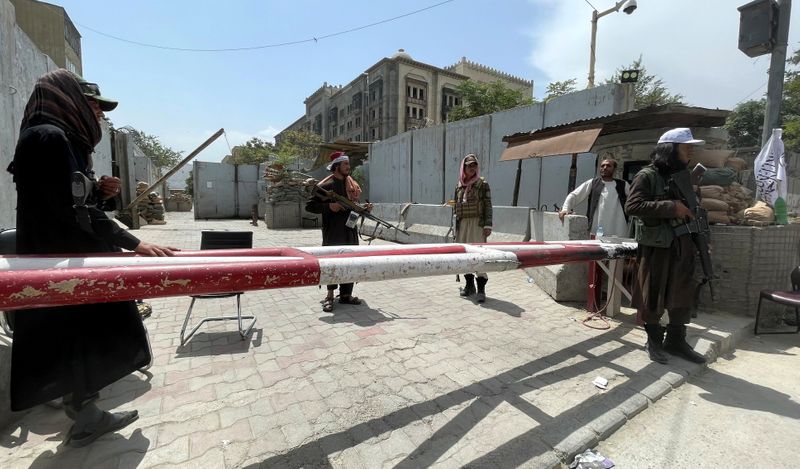By Stephanie Nebehay
GENEVA (Reuters) - The Taliban have assured the United Nations it can pursue humanitarian work in drought-hit Afghanistan, where the world body will insist on women's rights and access to all civilians, the top U.N. aid official in the country said on Tuesday.
In an interview with Reuters, Ramiz Alakbarov, the U.N. humanitarian coordinator for Afghanistan, urged Western donors to keep funding its work in a country where 18.5 million people, nearly half the population, depend on life-saving assistance.
Half of all Afghan children under the age of five already suffer from acute malnutrition, as the country reels from its second drought in four years, Alakbarov said.
"You have a kind of combination effect of displacement caused by war and by military hostilities compounded with displacement caused by drought and by the difficult economic conditions," he said from Kabul, seated at a desk in front of the U.N. flag, two days after the Taliban takeover nL1N2PO06L of the city.
About 600,000 Afghans have fled their homes this year, seeking to escape poverty and fighting, he said. Some have sold their organs or married off their children to survive, he said.
The U.N. currently has access to 394 of 401 districts in Afghanistan.
'DIFFERENT POSTURE'
The Taliban are on the U.N. list of terrorist organisations.
Asked about working with the Islamist militants, Alakbarov said: "When it comes to the Taliban, the United Nations humanitarian arm has worked with (the) Taliban for over 18 years, we have never stopped working with the Taliban. This is always done along the humanitarian credo of the United Nations - which is impartial, neutral."
"We are in the process of seeking renewed guarantees. And we have received these guarantees," he added.
Alakbarov said the Taliban had sent messages that they were taking a "different posture" than when they imposed the harshest forms of Islamist rule while in power from 1996 to 2001, but he acknowledged that implementation varied.
"We also have not seen yet a centralised directive to that end. We are working on it, we are hopeful that it will be according to what we want as the international community - specifically to have access for women and girls to schools, to have access for women and girls to be able to work," he said.

"It really depends on what the local commanders - and it may vary even within the province, it may vary from one district to another, who is in charge and what is that person's interpretation of the ruling is. That is why I say it is inconsistent throughout the country."
"What I think it is important to say is that the United Nations will stand by its principles - which is gender equality and the ability of women to access education, health services and exercise their rights," Alakbarov said.